Empowering students with language-based learning differences

Siena Blog



The Siena School Blog
Discover, Learn, Celebrate, and Empower
Welcome to Siena's blog, your source for helpful, cutting-edge resources tailored to teachers, parents, and other advocates in the learning differences community. We are dedicated to providing a wealth of curated knowledge spanning various topics, ranging from dyslexia advocacy and awareness to classroom teaching strategies, heritage month profiles, and social and emotional health.
Discover innovative classroom strategies that inspire creativity and foster a love of learning.
Our commitment to social-emotional wellness ensures that we provide valuable insights into healthy student development and self-advocacy.
Discover resources, reading and podcast recommendations, volunteering opportunities, and more for parents in the LD community.
Our important heritage month posts highlight key people, offer reading and podcast recommendations, and more.
Dyslexia-Friendly Book Editions
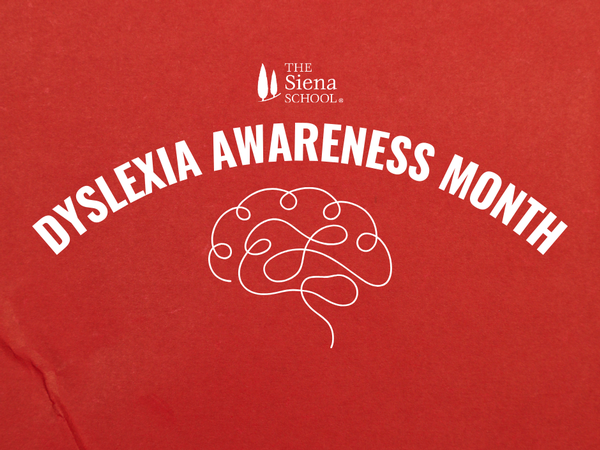
Avg. read time 3 min.
Dyslexia Awareness Month 2025
For Dyslexia Awareness Month 2025, Siena is taking the opportunity to highlight a promising new initiative from some book publishers: dyslexia-friendly editions of adult and young adult books. These offer dyslexic readers another option for print books by using certain font choices and page design elements to ease readability.
Dyslexia-Friendly Book Editions
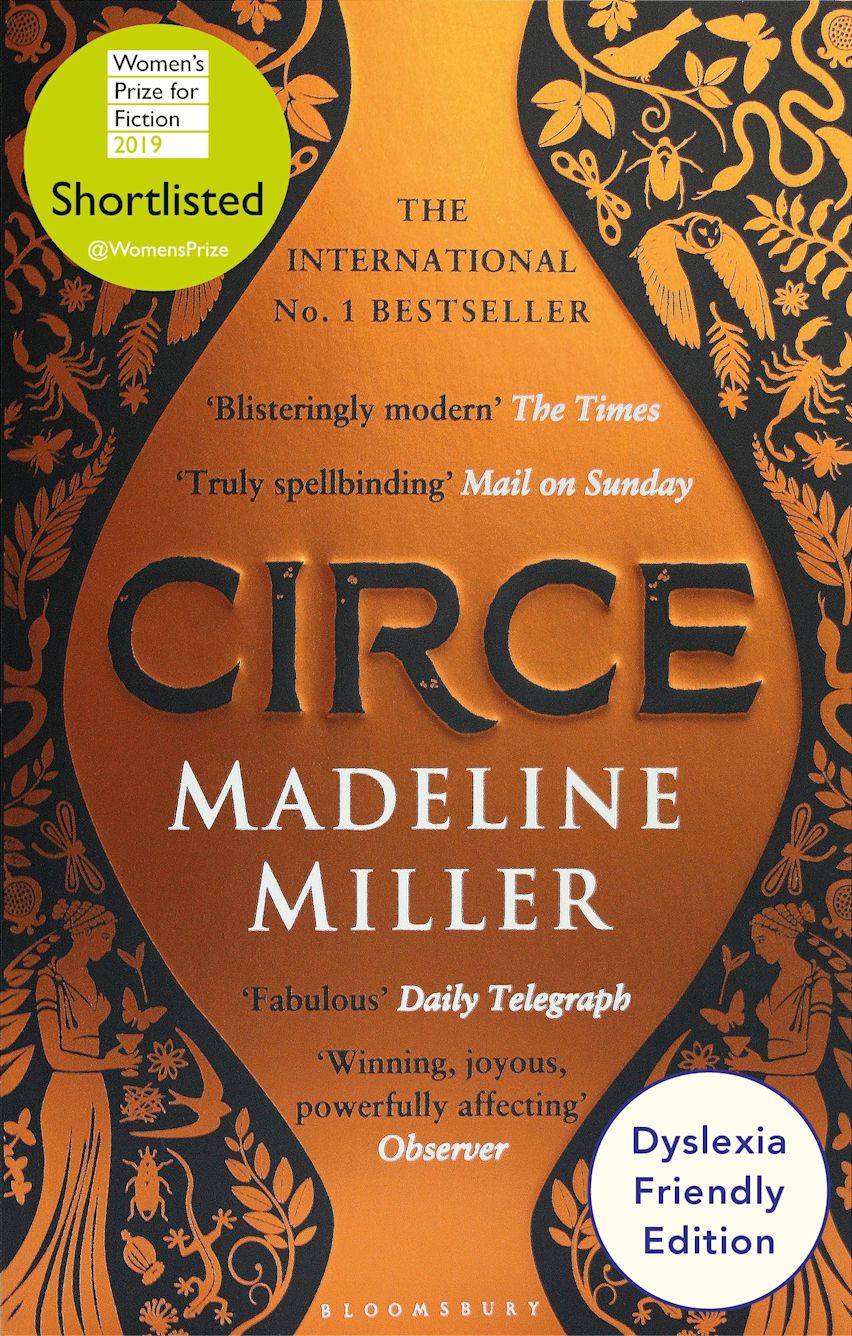
Two presses headquartered in England, Bloomsbury and Books on the Hill Press, have published several dyslexia-friendly book editions in the past few years.
Bloomsbury editions released in the past year include Circe and Song of Achilles by Madeline Miller, Piranesi by Susanna Clarke, and The Kite Runner by Khaled Hosseini. Books on the Hill Press has also offered dyslexia-friendly versions of such classics as Jane Eyre, Frankenstein, and selected Sherlock Holmes stories, among many other titles. In addition, they’ve also published versions of contemporary books by Bernard Cornwell and Garth Nix.
Jess Stevens, Rights Assistant for Bloomsbury's Adult Trade titles, shared in this short piece on their website that, as someone with severe dyslexia, she saw a need for such books and then pitched the idea to Bloomsbury in 2021:
When you’re young it’s because you don’t know the rules around reading and spelling. But as you get older, whilst those are still issues you encounter, they are joined by difficult formats, font choices and paper colour, adding to an already taxing experience.
Bloomsbury’s dyslexia-friendly editions use a sans-serif font and cream-colored paper with blue text to increase contrast and thus accessibility for dyslexic readers.
The dyslexia-friendly editions from Books on the Hill Press adopt a similar approach, using a larger, sans-serif font and generous line spacing to ease reading and processing. Books on the Hill Press was founded by Dr. Alistair Sims, who is dyslexic and co-owns and -operates a bookstore with his sister in Clevedon near Bristol, England.
“People assume that, if a book is for dyslexic adults, then it’s simplified in plot and language, but it’s not. We’re not really changing the contents, we’re changing the formatting to make it easier to read.” Learn more about Sims and Books on the Hill Press in this 2024 article from The Guardian.
There’s hope from Stevens, Sims, and others in the industry that this trend will catch on among major publishing houses to further expand availability for dyslexic readers.
Resources for Publishing Accessibility
Here are some additional resources for dyslexia-friendly reading:
- Books to Get Kids Reading (Dyslexia Help)
- Dyslexia Friendly Books for Children (Barrington Stoke Books)
- Some of these have Kindle editions with text that can be adjusted (e.g., size, font, color, margins, spacing, alignment)
- Everyone Can Be A Reader (Barnes & Noble)
- These editions use specialized fonts, paper tones, and formatting to increase readability across a wide range of age and interest levels. There is also a dedicated section and signage in Barnes & Noble stores.
- Flyleaf Publishing
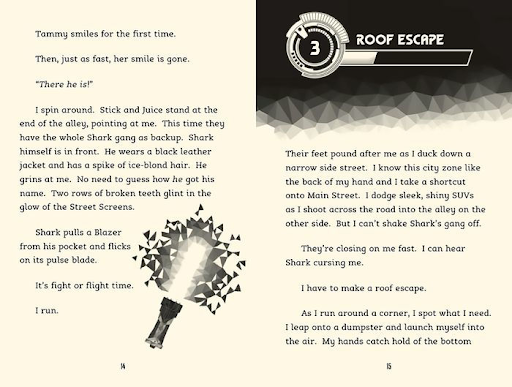
Siena Resources
Remember that Siena’s intentionality of communication for the LD community applies to our website: the LD-friendly dyslexie font can be activated by clicking on the Dyslexie icon on the top right corner (desktop) or bottom left corner (mobile) of our website.
Click here for some Helpful Resources on dyslexia, ADHD, college preparedness, and more. You can also explore our series of blog posts on Teacher Resources, Social-Emotional Health, and Cultural Heritage Spotlights.
The Siena School, a national leader in dyslexia education, serves bright, college-bound students with language-based learning differences on DC Metro area campuses in Silver Spring, MD (grades 3-4 and 5-12) and Oakton, VA (grades 3-12).
Siena Summer Reading 2024
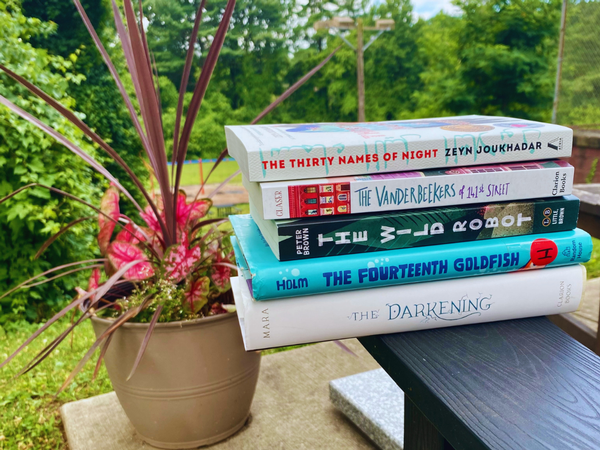
Avg. read time: 2 min.
Summer reading is important for students’ overall development, so let Siena help your student(s) find some age-appropriate books that are also interesting, relatable, and social–emotionally beneficial. For students with dyslexia and other language-based learning differences, summer reading lets them practice their decoding, retention, and fluency skills.
Summer Reading Recommendations for Teens and Tweens
At the end of each school year, Siena teachers share summer reading packets, which include recommendations and class readings for students across all grade levels. Teachers assemble reading lists to share with students, always choosing a variety of books that reflect Siena’s diverse community and curriculum. Here are some of the books Siena’s students will be reading this summer:
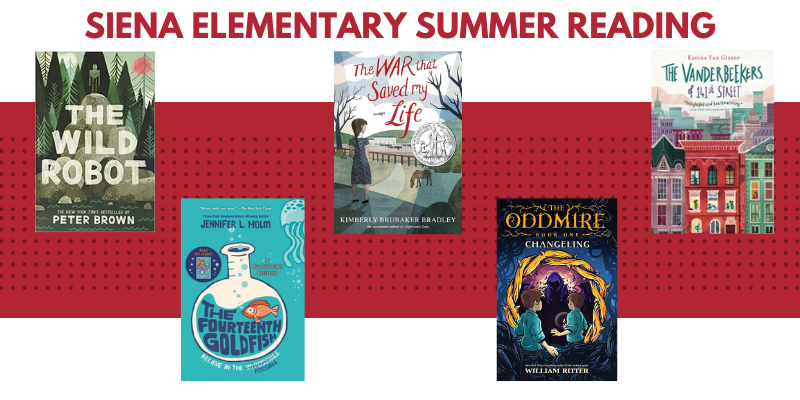
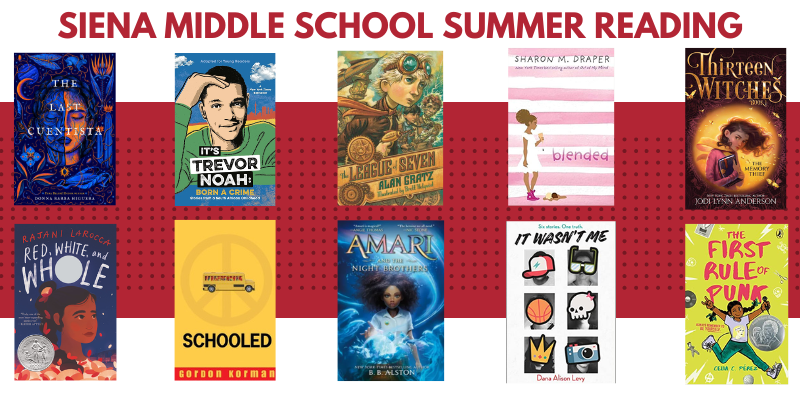
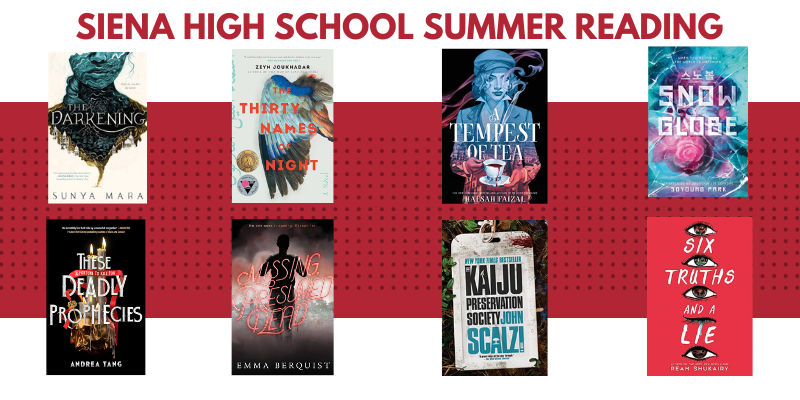
Additional Summer Reading Resources
General Resources
- Summer Reading Tips for Parents from the Learning Disabilities Association of America offers good advice to keep summer reading enjoyable.
- The National Education Association has ample resources, tips, and more for children to Get Serious About Summer Reading.
- The New York Public Library has Staff Picks for Teens and Staff Picks for Kids, including some in Spanish.
- Students who prefer to listen to books—or who perhaps want to read along while listening—should also explore the audiobook selections on Learning Ally, Audible, and AudioFile.
- Students who prefer more visual storytelling can see these 80 Best Graphic Novels for Kids.
Local Resources
- Maryland families can check the Montgomery County Public Library’s Summer Reading Challenge, which includes summer reading booklists by grade.
- Virginia families can check the Fairfax County Public Library’s Summer Reading Adventure and Recommended Reads.
- Washington, DC, families can check the DC Public Library’s Discover Summer for Kids.
- An additional option for summer reading work is Siena Tutors, which provides individual virtual instruction for students in grades 3-12. Learn more here.
Siena Resources
For more information from The Siena School blog, see previous posts about Summer Boredom Busters, successful Summer Academics and Camps, Summer Tech Skills, and Summer Reading 2022.
The Siena School, a national leader in dyslexia education, serves bright, college-bound students with language-based learning differences on DC Metro area campuses in Silver Spring, MD (grades 3-12) and Oakton, VA (grades 3-11).
Black History Month Spotlight: LeDerick Horne and Marcia Brissett-Bailey

Avg. read time: 3 min.
The theme of Black History Month 2024 is African Americans and the Arts. The arts in all their forms have always been instrumental to Black culture. Since art has been one of our core values from the beginning, Siena is highlighting a pair of contemporary Black writers with dyslexia, as well as sharing some reading and other resources to commemorate this important month.
Writer and Poet LeDerick Horne
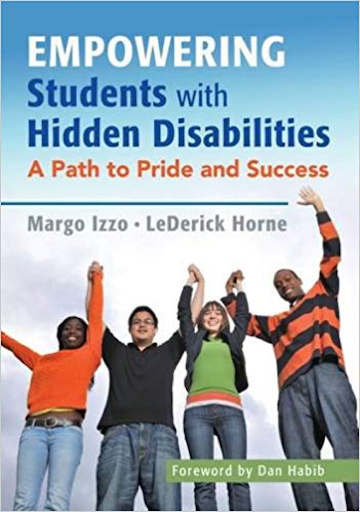
Poet, speaker, and advocate LeDerick Horne grew up in New Jersey and received an early dyslexia diagnosis (3rd grade). This laid the foundation for his decades of writing, speaking, and advocacy work on behalf of the LD community and Black identity.
Here are some key points in Horne’s career thus far:
- Horne did foundational work on the governing board of Eye to Eye, a nonprofit mentoring program for LD students. He’s on the advisory board for The National Resources for Access, Independence, Self-Determination, and Employment (RAISE), and he’s a member of the governing board for the New Jersey Coalition for Inclusive Education.
- Horne’s many honors and associations include LDA, Eye to Eye, NAACP, The White House, and the UN Convention on the Rights of Persons with Disabilities, as well as many presentations and media appearances.
- Horne coauthored Empowering Students with Hidden Disabilities: A Path to Pride and Success with Margo Izzo (2016), a guidebook collecting personal stories and strategies for teachers and families.
- He has also released two spoken word poetry collections, Black and Blue in 2011 and Rhyme, Reason, and Song in 2005 (both available on Apple Music). Horne has also been profiled on Poets List and in the short documentary Normal Isn’t Real, among many other platforms.
“What is funny—and ironic—for those of us who have learning disabilities is that the challenges that we were chastised for as children end up becoming these extremely valuable tools out here in the marketplace.” (LeDerick Horne)
Writer and Advocate Marcia Brissett-Bailey
Writer, speaker, and dedicated dyslexia and neurodiversity advocate Marcia Brissett-Bailey grew up in London and received her dyslexia diagnosis at age 16. “I no longer felt stupid” upon hearing about her learning difference, she shared in this article.
Here are some key points in Brissett-Bailey’s career thus far:
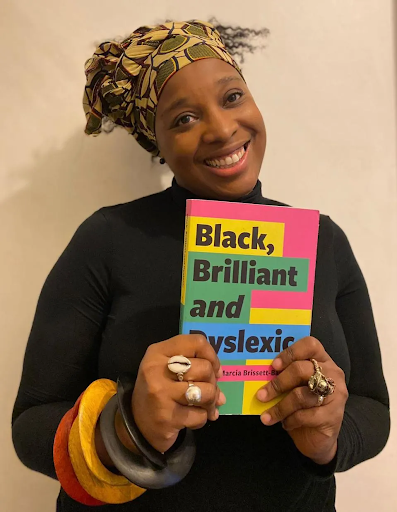
- She is currently Further Education Partnerships Lead at Diversity and Ability, leading their support and guidance for young people under 18, as well as their parents and caregivers, schools, and colleges.
- She edited Black, Brilliant and Dyslexic: Neurodivergent Heroes Tell their Stories (2023), a collection of first-person pieces from the Black dyslexic community from an international, intersectional perspective. In her words, “My book takes us on a journey to challenge structural racism and years of trauma on people who are marginalized by different forms of oppression and may only come forward when they feel safe to be their whole selves.”
- Brissett-Bailey edited a special issue of Contact magazine in October 2021 that highlights the important work of the British Dyslexia Association Cultural Perspective Committee.
- Among other places, Brissett-Bailey has been profiled in Forbes, Business Forums International, and British Dyslexia Association, as well as the Move Beyond Words podcast.
“Dyslexia is daily…but I wouldn’t be authentically me without dyslexia as it’s giving me so many advantages…in seeing the world through a creative lens. My high-level thinking, seeing the bigger picture visually, hyper-focus on my interests, seeing patterns others do not see and conceptual thinking.” (Marcia Brissett-Bailey)
Resources for African American Arts and Culture
See Arts Resources from the Smithsonian for a wealth of local events, spotlights, podcast recommendations, museum exhibits, and more commemorating Black History Month.
The Frederick Douglass National Historic Site in Anacostia has a series of events commemorating Black History Month and the 206th anniversary of Douglass’s birth. Those interested in books by Frederick Douglass can read his three autobiographies (Narrative of the Life, My Bondage and My Freedom, and Life and Times), as well as selected speeches and his only novel, The Heroic Slave.
In addition to the Douglass Historic Site, the Mary McLeod Bethune Council House National Historic Site and Carter G. Woodson Home National Historic Site in DC are also offering weekly programs and special events this month.
Lastly, some recent fiction, nonfiction, and poetry books by Black authors to look up include:
- Dr. Mariel Bruqué, Break the Cycle: A Guide to Healing Intergenerational Trauma
- Common, And Then We Rise: A Guide to Loving and Taking Care of Self
- Kia Corthron, Moon and the Mars
- Brianna Craft, Everything That Rises: A Climate Change Memoir
- Melania Luisa Marte, Plantains and Our Becoming
- Ayana Mathis, The Unsettled
- Ijeoma Oluo, Be a Revolution
- Clint Smith, Above Ground
- Jesmyn Ward, Let Us Descend
Fans of the recent Color Purple film can go back and read Alice Walker’s 1982 novel, as well as her foundational works In Search of Our Mothers’ Gardens (1982) and Possessing the Secret of Joy (1992).
Siena Resources
The Siena School blog has other heritage month spotlights related to innovative dyslexia education, including Native American book recommendations, Mexican writer and activist Victor Villaseñor, Chicano artist Ignacio Gomez, WNBA stars A’Ja Wilson and Jewell Loyd, NFL star Rashan Gary, and others. Learn more about Siena’s commitments and ongoing initiatives for Diversity, Equity, Inclusion, and Belonging.
The Siena School proudly serves students with dyslexia and other language-based learning differences in grades 3-12 on campuses in Silver Spring, Maryland, and Oakton, Virginia.
Dyslexia Reading and Podcast Recommendations

Avg. read time: 2 min.
As part of Dyslexia Awareness Month 2023, Siena has put together this short guide of books and podcasts that can help families in the LD community navigate their children’s specialized learning and social–emotional needs.
Book Recommendations for Dyslexia Awareness Month
- Adventures of Everyday Geniuses series
- Fish in a Tree by Lynda Mullaly Hunt
- Gifted and Distractible by Julie Skolnick
- Make it Stick by Peter C. Brown, Henry L. Roediger III, and Mark A. McDaniel
- Overcoming Dyslexia by Dr. Sally Shaywitz
- The Dyslexic Advantage by Drs. Fernette and Brock Eide
- The Knowledge Gap by Natalie Wexler
See also Siena’s in-house parent resource library list, The Literacy Nest, National Education Association, and Yale Center for Dyslexia and Creativity for more reading recommendations.
Podcast Recommendations for Dyslexia Awareness Month
See The Siena School blog for these related resources for LD families:
- Black and Dyslexic
- Fish Don't Climb Trees
- Lessons in Dyslexic Thinking (Made By Dyslexia)
- Dyslexia Coffee Talk (The Dyslexia Initiative)
- Tell Me This episode featuring Siena’s Dr. Jilly Darefsky
- The Invisible Gift
- The Science of Reading episode featuring Dr. Sally Shaywitz
- The Truth About Dyslexia
Blog Post Recommendations for Dyslexia Awareness Month
See The Siena School blog for these related resources for LD families:
- Common Acronyms in LD Education
- Podcasts for Every Interest
- Summer Reading At Siena
- Winter Break Podcast Recommendations
- Winter Break Reading at Siena
The Siena School proudly serves students with dyslexia and other language-based learning differences in grades 3-12 on campuses in Silver Spring, Maryland, and Oakton, Virginia.
Winter Break Reading at Siena

Avg. read time: 3 min.
Looking for book recommendations to support dyslexic readers heading into winter break? Let Siena’s elementary and middle school teams help.
With winter break approaching, it’s important for students—especially ones with language-based learning differences—to read for at least 20 minutes a day to keep their literacy, decoding, and related skills honed. Regular daily reading will help keep students engaged through winter break with a variety of enjoyable, teacher-recommended books, series, graphic novels, short story collections and more.
Elementary School Book Recommendations
Here are some of our elementary classes’ top book recommendations this year so far, as suggested by elementary teachers:
- City Spies by James Ponti
- Nick and Tesla’s High-Voltage Danger Lab by Bob Pflugfelder and Steve Hockensmith
- The Mystery of Black Hollow Lane by Julia Nobel
- The Greystone Secrets #1: The Strangers by Margaret Peterson Haddix
- Flunked: Fairy Tale Reform School #1 by Jen Calonita
Elementary student Ania recommends Flunked: “I thought it was really interesting, and I liked that I never knew what was going to happen next.” Ania’s classmate Grayer really enjoyed Nick and Tesla’s High-Voltage Danger Lab: “It was a good book. It was fun to read about the brother and sister making things with their uncle in his lab.”
.png)
Middle School Book Recommendations
Teachers from Siena’s middle school English and Reading teams recommend these books for readers in 6th to 8th grades:
- Miles Morales: Spider-Man by Jason Reynolds
- City of Ember: The Graphic Novel by Jeanne DuPrau (Adapted by Dallas Middaugh)
- Warcross by Marie Lu
- The Inheritance Games by Jennifer Lynn Barnes
- You Should See Me In a Crown by Leah Johnson
- The Hunger Games by Suzanne Collins
- Ungifted by Gordon Korman
- Scythe by Neil Shusterman
- Pumpkin Heads by Faith Erin Hicks
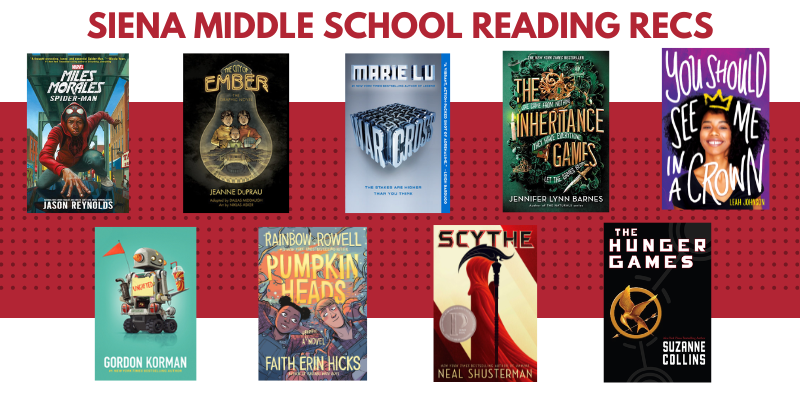
Resources for Book Recommendations
Young readers who prefer audiobooks can look for these and other books in the offerings from Learning Ally, Audible, and the Young Adult Library Services Association, among other resources.
Education consultant Ann Dolin wrote about engaging reluctant readers over summer break, including a handful of recommendations for different ages and suggestions for reading as a family. Although winter break is shorter than summer, parents could adapt some of Dolin’s ideas for their students—such as starting a book series to pique their interest in the next few weeks.
Whether it’s over winter or summer break, giving students some control over the process of selecting books when they’re not in school can motivate them to read for at least 20 minutes a day.
Here are some additional resources to help students with summer reading:
- Fairfax County Public Library Teen Events and Resources and Montgomery County Public Library For Teens offer recommendations, events, programs, and more. Check public libraries in your area for similar summer reading services for young people.
- The National Education Association offers ample resources, activity ideas, and links for families to find diverse books.
- The New York Public Library’s Staff Picks for Teen Readers goes back to Spring 2019 and lists English- and Spanish-language books. The NYPL blog also has expert-curated lists of books and other materials for school-aged readers.
See Siena’s blog for winter break podcast recommendations, summer reading recommendations, and posts about authentic assessments at Siena and about a handful of Siena alumni who’ve returned as staff members.
The Siena School, a national leader in dyslexia education, serves bright, college-bound students with language-based learning differences on campuses in Silver Spring, MD (grades 3-12) and Oakton, VA (grades 3-11).
No Summer Camp? Ideas for Summer Fun at Home
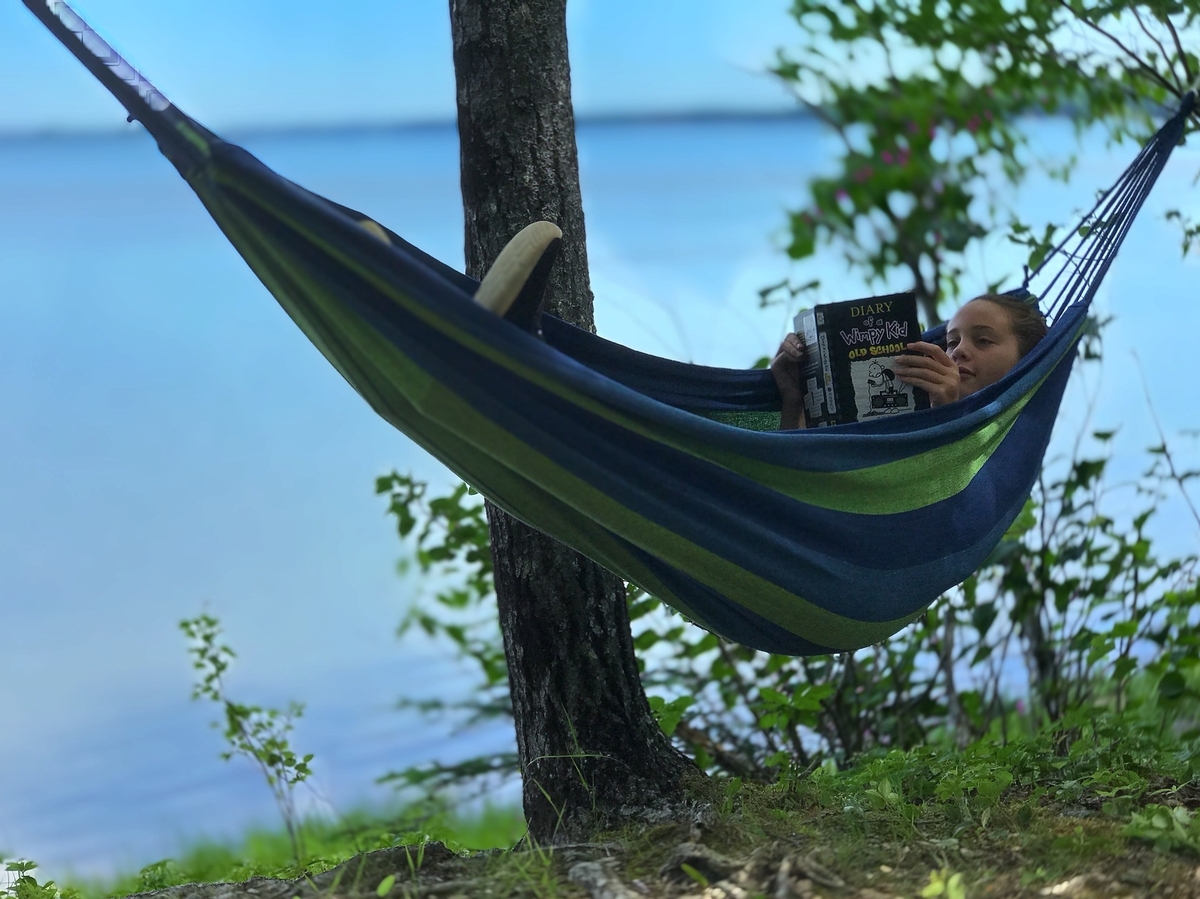
With a different kind of summer this year, parents might be looking for resources to not only structure their kids’ time but also give them some (fun) intellectual work to ready them to thrive next school year.
Sara Weiser, an occupational therapist in Northern Virginia, noted in a recent webinar that, “As parents, we sometimes forget that kids really thrive on structure and routine.” In the same webinar, Maria Zimmitti, a psychologist and clinical director in the DC area, added: “Summer is not the time to make up everything that was lost in the last ten weeks of school. Keep it simple.”
Thankfully, parents looking for a manageable, flexible structure this summer have options for balancing their work needs with family time, children’s learning and leisure needs, and their own self-care. Many of the ideas for trips, tours, and social activities that we shared for virtual spring break could also work for the summer.
Here are some more ideas and resources for families that can get kids moving, keep activities multisensory, and allow for some independent and some social time:
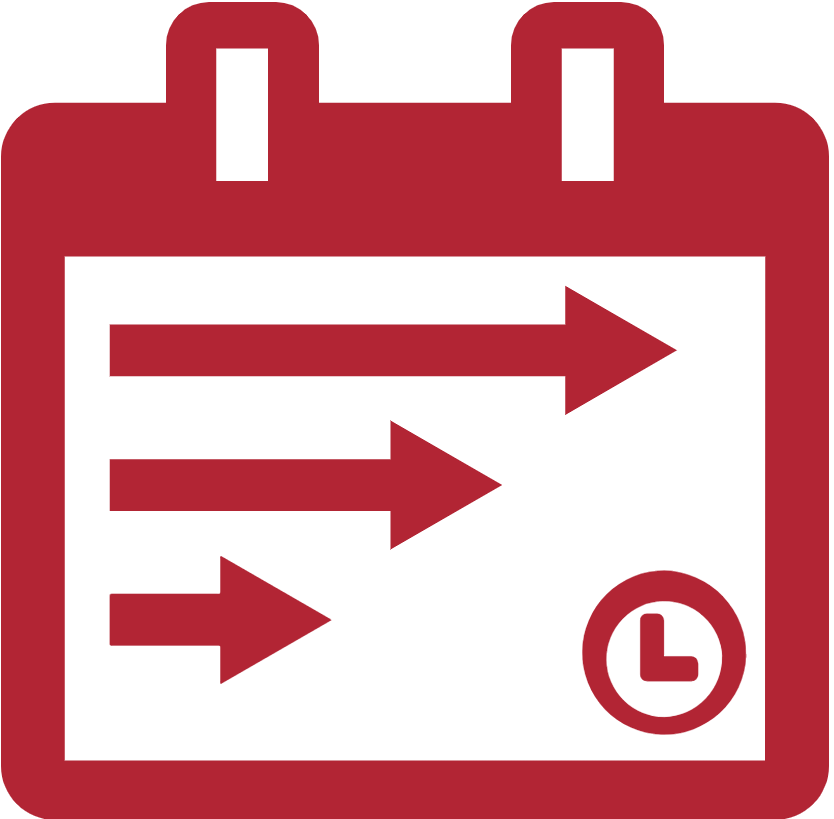 Planning and Scheduling
Planning and Scheduling
- Have a visual schedule that allows for some flexibility and input from the whole family, so everyone in the family feels heard and paid attention to. What kinds of options can give kids some control and choice, while still ensuring an appropriate level of structure? (See below for a sample schedule.)
- Ann Dolin, owner of Educational Connections, suggests asking kids, “What do you want to learn or do this summer?” From there, each family member can brainstorm around their interests and write their answers on Post-its (each family member gets their own color). Sharing and discussing options as a family helps identify a few activities to build summer plans around, which can then turn into a chart with multiple columns for each person.
- For talking to high school kids, Zimmitti suggested that parents schedule a meeting to discuss important topics so everyone has mental prep time. Sending a calendar invite and letting kids pick the time and day avoids springing important discussions on teenagers, who might not be flexible or amenable to ideas if they feel blindsided. As well, she advocated giving teens daily and weekly tasks but letting them decide when to do them; this potentially gives high schoolers a nice balance of responsibility and flexibility.
- Regardless of whether kids are internal or external processors, allowing lead-in time for the discussion helps parents process along with their kids, provided that they follow the R.U.L.E. approach (Resist the urge to tell them what to do, Understand what they want to do, Listen with empathy, and Encourage them).
 Indoor Activities
Indoor Activities
- Reading-based games and activities, such as virtual book clubs and read-alouds, are encouraged. Parents could coordinate a virtual read-aloud to give kids some social time, as well as help each other get some work or down time. Older readers might even like leading the read-alouds for younger kids.
- Kids can both listen to stories read and see some animations at Storyline Online: it’s primarily for younger readers (K–4) but could also be good for older kids’ nostalgia and seeing celebrities they might already know read old favorites. Audible is another fantastic resource for readers of all ages, including their free audiobooks for kids.
- Some parents are rereading and sharing old favorites with their children. Have your old copy of The Hobbit, Tales of a Fourth Grade Nothing, or the original Choose Your Own Adventure series? This is a good time to introduce them to your kids, who could then share them with their friends. Parents can either co-read these with younger children or have older children read them on their own and report back in a fun book report or reaction list. Parents could also choose one dinnertime and make it a book discussion—or even get a special to-go meal when they can then have a book discussion and one-on-one time with their child about a book they both read.
- Parents could do the same with movies they enjoyed in their youth to give kids a quasi-educational activity and sneak in some learning (e.g., watching a film adaptation of a favorite book and then steering the kids to the book, or vice versa). Arranging a virtual movie night around parents’ old favorites could be a fun (and repeatable!) social activity too.
- Kids ages 9–14 interested in video editing can attend Virtual Video Production Camp from Zack Wilson, a teacher at Takoma Park Middle School in Takoma Park, Maryland.
- Preteens and teens might enjoy the Virtual Music Production Songwriting Camp from Dudley’s B Sharp Academy. There are 5 sets of dates in July and August; email info@bsharpworld for information and registration.
- Kids of various ages can leverage their creativity into sharing and/or volunteering opportunities. Have a child who likes to cook or bake? Look into how they can teach others their skills virtually (such as a younger relative). Parents could also help kids figure out how to cook or bake things for front-line workers, as well as donate items to a local food pantry. For example, Montgomery County, Maryland, has a full list of volunteering opportunities; check for other opportunities in your area.
- Enjoy some family game time with Scrabble, Word Witt, or other games that merge fun and language learning.
- Additional creative/learning options include John Spencer Writing Prompts on YouTube, BrainPOP, and BrainPOP Jr.
- Check out Virtual Field Trips, which has many options sortable by age.
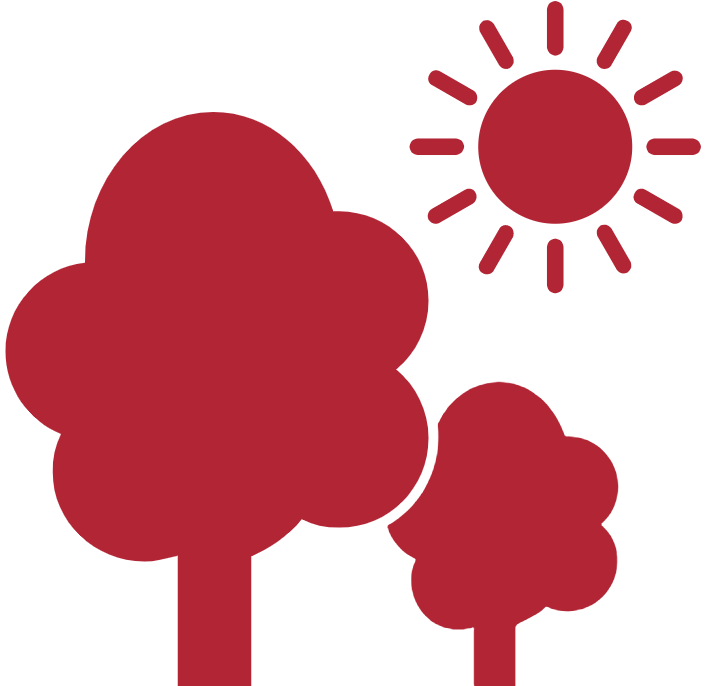 Social and Outdoors Time
Social and Outdoors Time
- We Are Teachers shares some great Fourth of July (and after!) activities for families, multisensory water activities for STEM and other kinds of learning, and imaginary vacations that parents can take to Paris and elsewhere with these 21 books.
- Many of Parade’s 125 things to do with kids at home can still be done over the summer, such as setting up a treasure hunt, playing Read-at-Home bingo, taking virtual museum or aquarium trips, and more.
- Connecticut Children’s has ideas for geocaching, exploring science at home, virtual museum trips, and more.
- Moving and working on team-based sports skills can be quite difficult when leagues aren’t in session. Without team activities and practice settings, young athletes can still keep themselves in shape and develop good habits. Some parents could involve coaches and other mentors for virtual meetings and training sessions.
- To both leverage technology and gamify learning, parents could introduce friendly competitions between kids (or whole families!). Number of steps? Skills building? Successful gardening or flower growing? Scavenger hunts? Cell phone photography? Lego builds and challenges? Parents could agree on a prize for the winner to further incentivize the competition.
 Resources
Resources
- Siena counselor Holly Rothrock wrote about self-care and anxiety management, which remain important as the pandemic and related closures and other social restrictions continue.
- American Camp Association’s Resource Library has ideas for parents, and a page full of organizations offering virtual resources for mindfulness and mental health.
- Documentary filmmaker Delaney Ruston’s Screenagers continues to be a useful support for parents dealing with teens and screens. See their resources and information about online events.
- Parents can also learn more about high- and low-dopamine screen activities to manage screen time (which can sometimes be good).
- Dyslexia Help from the University of Michigan has a lot of information for parents about finding kids’ interests over the summer and improving reading and writing.
- Allison Sibley of The Sibley Group offers “Summer Ideas during COVID” and a family communication plan about continuing to deal with the pandemic and related closures, as well as preparing for limited social activities outside the house.
- Sara Weiser offers resources on her website, including Flexible Structure Tips for making a visual schedule.
- My Learning Springboard has a blog and other resources, including “How To Avoid the Summer Slide.”
- Ann Dolin offers her “Homeschooling During COVID-19” e-book, among other resources.
Managing kids’ energy and boredom while engaging their minds, bodies, and social needs might take a whole-family effort, so communicating and exploring options is especially important. Summer break doesn’t have to be broken this year. It can, in fact, be more connected and constructive than it might seem at first.
*Note: We do not endorse any of the above sites or resources. Please check the privacy and appropriateness for your child.

